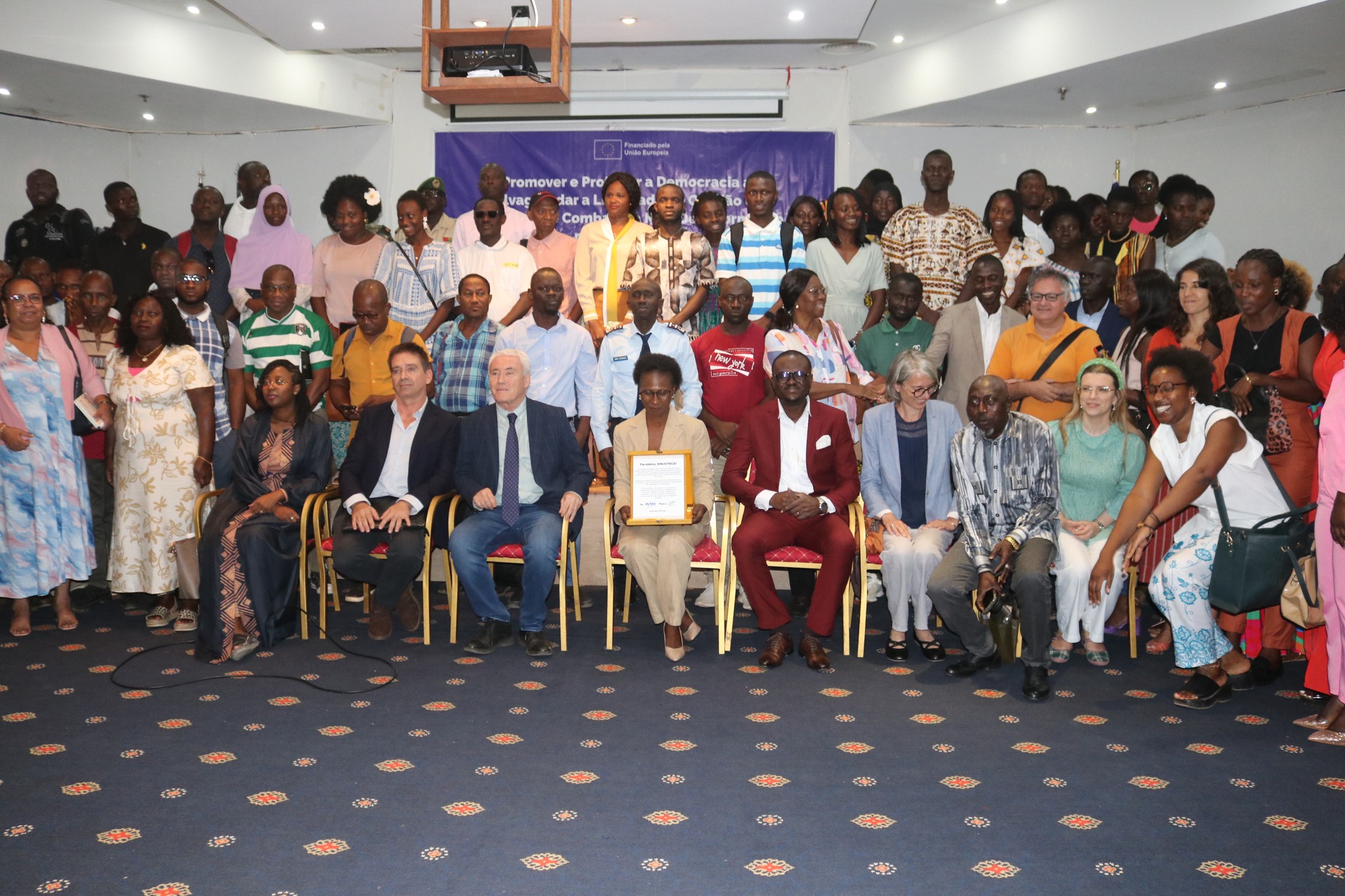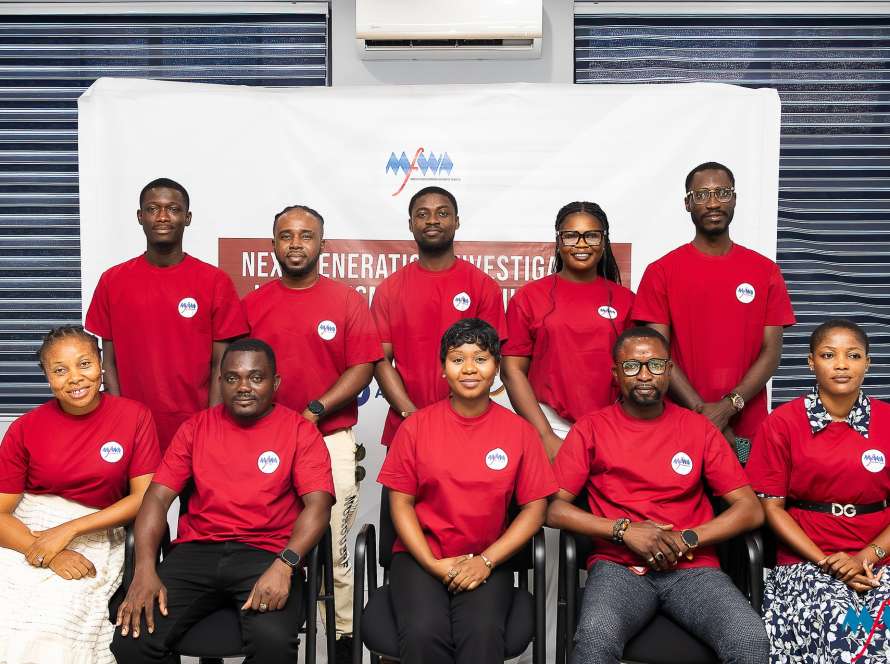As disinformation, hate speech and threats to freedom of expression threaten democracy in Guinea-Bissau, a new initiative has been launched in the country to strengthen the country’s media sector and protect the civic space.
The 18-month project, titled “Promote and Protect Democracy by Safeguarding Freedom of Opinion and Expression and Combating Mis/Disinformation in Guinea-Bissau,” was officially launched on May 26, 2025, in Bissau.
Funded by the European Union, the project is being implemented by a consortium of three press freedom and freedom of expression organisations, namely, the Media Foundation for West Africa (MFWA), Reporters Sans Frontières (RSF) and Fondation Hirondelle (FH).
Upholding Press Freedom and Building Peace
“Journalists have as much to do with making peace as they do with waging war,” keynote speaker Humberto Monteiro, Senior Advisor to the Minister of Communication, set the tone at the official launch.
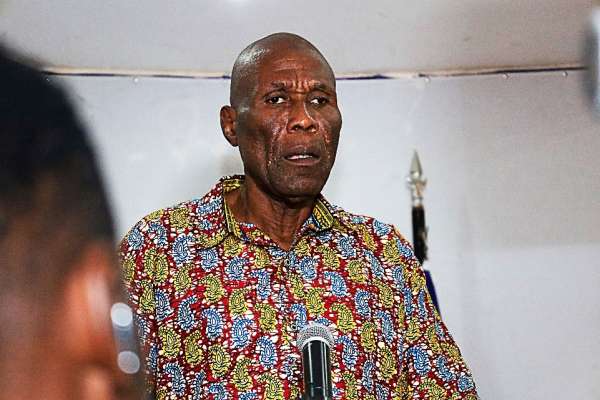
Monteiro also emphasised the importance of freedom of expression and opinion, while calling for responsibility and warning about the dangers of unchecked misinformation.
“We must always rise to the level of our own freedom of thought, and also permit others to express their opinions freely. Disinformation often arises when journalists are lazy; when they don’t verify facts. People want impartial, free, and transparent news,” he added underlining the importance of rigour and ethics in journalism, especially ahead of the 2025 elections.
The state official stressed the urgent need to reform Guinea-Bissau’s media legislation, while announcing plans by the ministry to introduce a professional journalist identification card as a step towards recognising and protecting the profession.
Empowering Voices, Strengthening Institutions
The project responds to the country’s growing vulnerability to misinformation, amplified by low institutional capacity and growing pollical pressure. It seeks to improve the safety of journalists, promote ethical standards, and and increase public understanding of media and information literacy, with a focus on youth and women.
Speaking on behalf of the EU, Fernando Trabada, Head of Cooperation at the EU-Delegation in Guinea-Bissau, reaffirmed the EU’s commitment to democratic values and press freedom.
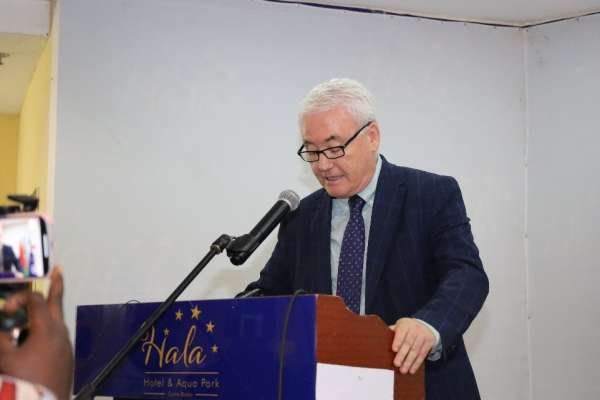
“Freedom of expression, in the sense of the right to inform, question, and participate in public debate, is one of the essential pillars of any democracy that aspires to be representative and participatory,” he said.
Mr. Trabada added that “Hate speech is not freedom of expression. It fuels division, perpetuates violence and undermines social cohesion.”
Timeliness of the Action
Indira Correia Baldé, President of the Jornalistas e Técnicos de Comunicação Social da Guiné-Bissau (SINJOTECS), Guinea-Bissau’s journalists’ union and a long-standing partner of MFWA, welcomed the initiative as a timely intervention to consolidate past gains.
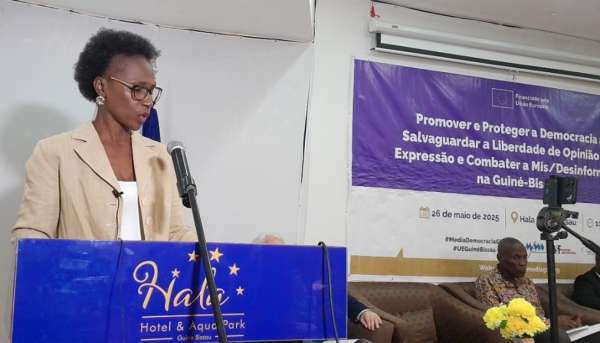
“It is up to us to create legitimate spaces for debate and resist any form of censorship or pressure,” she said, calling for unity among media organisations, commending the EU and project partners for their support.
Representatives from the project consortium echoed the urgency of the initiative. As Guinea-Bissau prepares for its next electoral cycle, the project is seen as a strategic investment in the long-term resilience of democratic institutions and the protection of civic space.
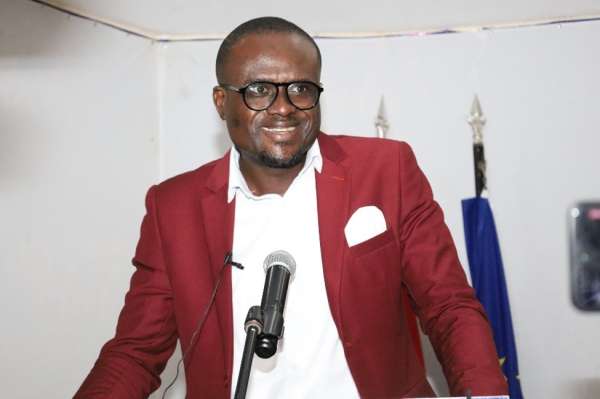
Dr. Daniel Kwame Ampofo Adjei, MFWA’s Institutional Development Manager and the Project Manager, described it as “a critical opportunity to rebuild public trust and strengthen democratic resilience through ethical journalism.”
He reinforced the consortium’s shared vision of building a media ecosystem that protects freedoms and serves public interest.
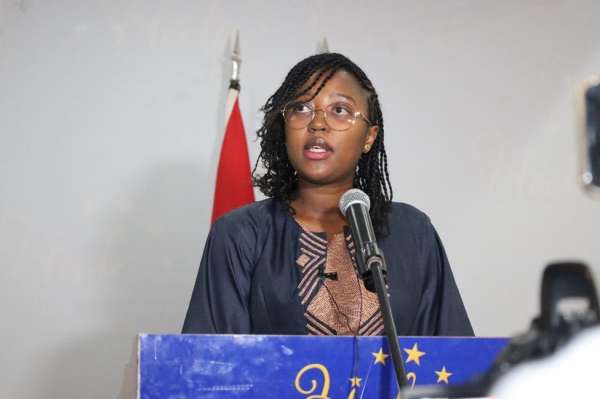
Ndeye Diary Ba, Project Manager for Sub-Saharan Africa at RSF, raised concern over Guinea-Bissau’s drop in RSF’s 2025 World Press Freedom Index and urged stakeholders to pursue “concrete and lasting solutions.”
“Together, we form a strong alliance, united by a common goal to defend press freedom, support ethical journalism, and ensure access to free, independent, and reliable information for all,” she concluded.
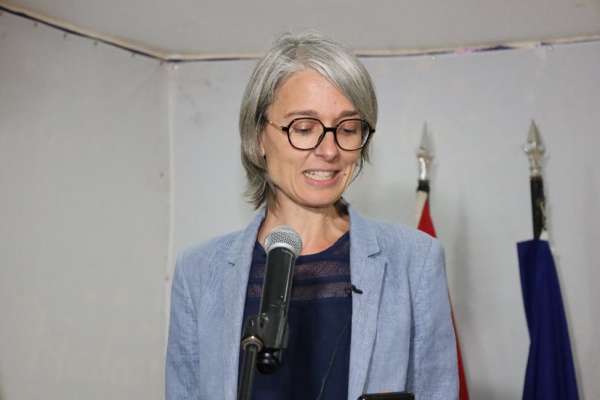
Julie Godignon, Programme Manager at FH, reminded participants that “information is a public good,” and stressed the need for “future leaders of society […] to distinguish truth from falsehood and form their own opinions.”
“The future of democracy in Guinea-Bissau depends on strong, inclusive, and resilient journalism, and this project is a concrete step in that direction,” she concluded.
Voices for Change
The event also feature key voices from civil society, including youth and women’s groups, who spoke on the need to protect press freedom and fundamental rights.
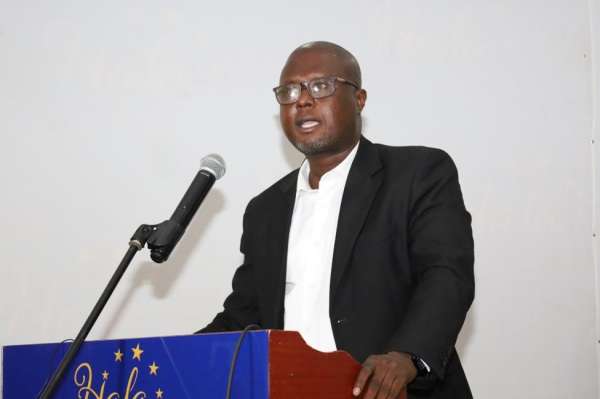
Victorino Indeque, National Coordinator of RDDH, praised the dedication and resilience of the Guinean media despite difficult conditions.
“Journalists inform, investigate, and hold power accountable,” he said, acknowledging the media’s vital role in shaping public opinion and promoting civic responsibility, even in the face of “disinformation, political and economic pressures.”
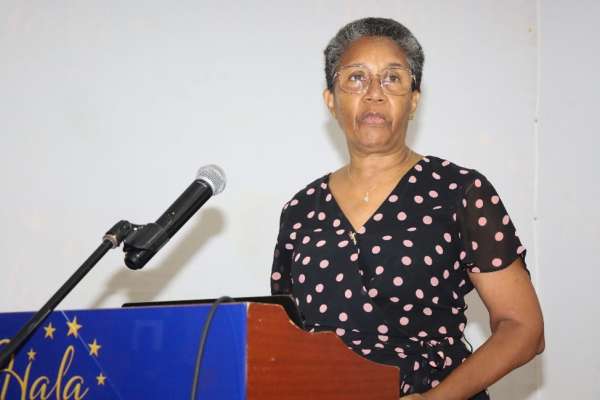
Isabelle Almeida of the Observatorio Mindjeris highlighted the critical role of access to information in empowering women and combating harmful stereotypes that lead to societal exclusion.
“We believe that information is a powerful weapon to combat obscurantism and rumours,” she said.
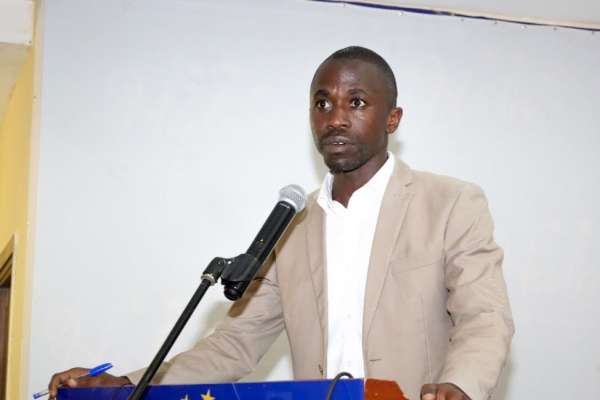
Youth leader, Abulai Djaura, President of RENAJ, emphasised the importance of upholding freedom of expression for democratic progress.
“We are ready to collaborate… so that our country not only lives in a climate of freedom but becomes a truly democratic nation where young people can dream and realise their ambitions,” he concluded.
A project by Guinea-Bissau, for Guinea-Bissau
Carlos Zarza, EU Attaché for Justice, Security, Gender and Human Rights Cooperation, closed the ceremony by reaffirming the project’s participatory approach and long-term importance.
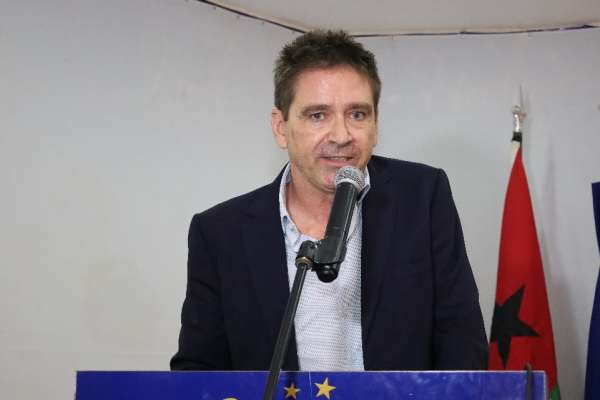
“This is a project by Guinea-Bissau, for Guinea-Bissau,” he stated, adding that “The EU will continue to support its full implementation and follow-up.”
Over 124 participants attended the launch, including stakeholders from media, civil society, government institutions, academia, political parties, and the diplomatic community.
The event also featured a presentation on the project’s scope as well as a poetic recital and a theatrical performance highlighting the dangers of censorship and misinformation. In honour of its two decades of advocacy for press freedom and journalistic integrity, SINJOTECS was awarded a Certificate of Recognition.



